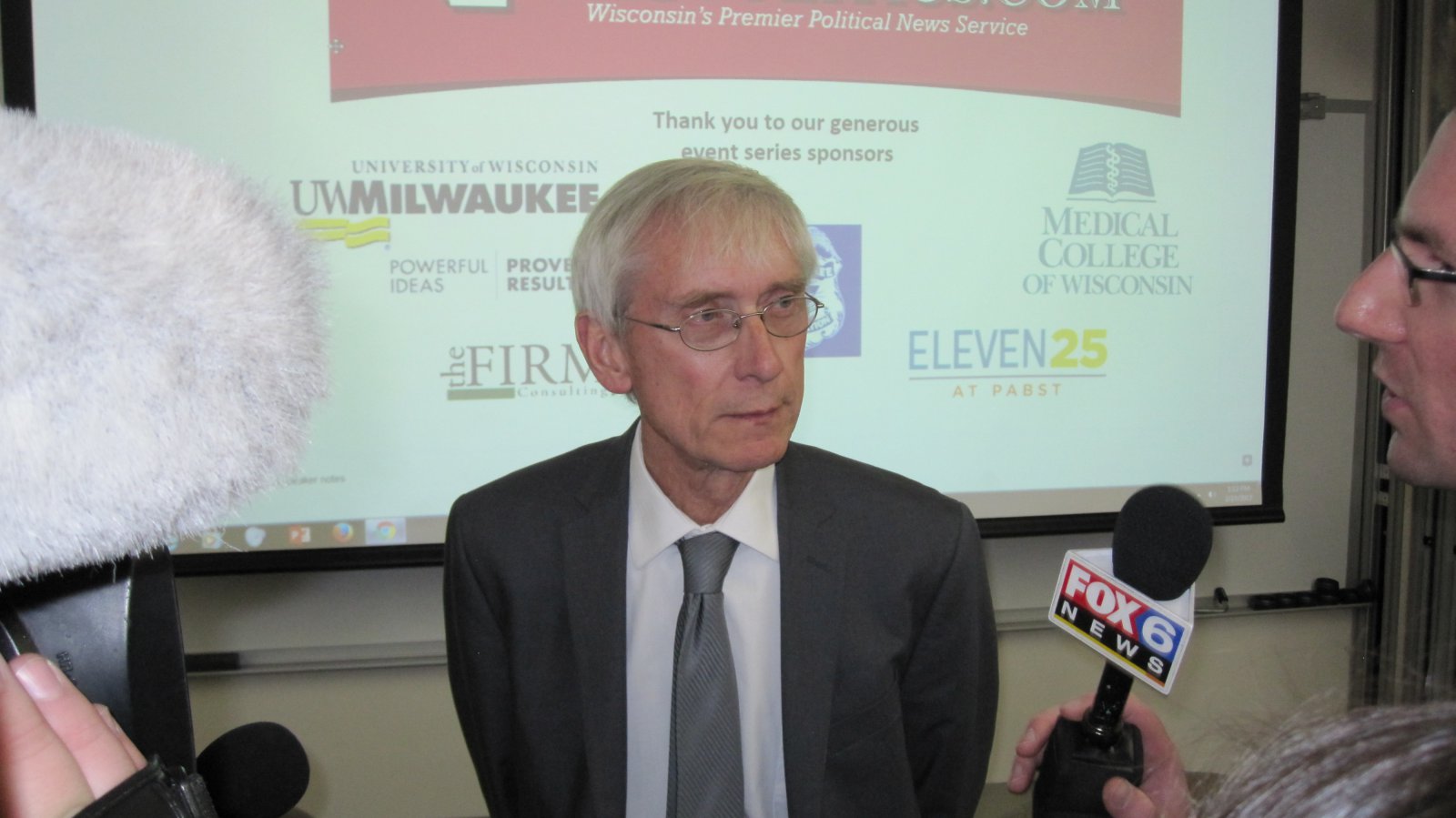Tony Evers’ Best Chance for Enduring Reform
Restructure transportation funding, using the model of electric utilities.
Over the last half century, Wisconsin governors have a mixed record when it comes to leaving a real mark on state government. Those with a lasting impact include Warren Knowles, Pat Lucey, Tommy Thompson, and Scott Walker. In contrast, the imprint of Lee Dreyfus, Tony Earl and Jim Doyle is of a lesser order.
Will Tony Evers be consequential? How could he make a real difference? His campaign mainly offered a formulaic liberal platform, i.e., shoveling boatloads of money to K-12 school districts, blowing up school choice, expanding health care entitlements without real reform in medical care delivery and insurance, and reducing prison populations by thousands — up to 50 percent. Aside from the pros and cons of those ideas, some hard facts stand in his way: namely, a GOP legislature and a state fiscal situation that is more constrained than many observers appreciate.
Transportation finance is an area where Evers could have a real impact. With executive leadership, Republican and Democratic support could be found for meaningful reform.
It doesn’t have to be that way. Consider the stark contrast between the condition of the transportation infrastructure and the utility power grid. When a switch is flipped, the lights go on in every sector of the state. Name the last time a business has curtailed operations because it could not power up an office or factory. Compare that to the well-documented costs incurred daily by weight limits on rural bridges and congestion on deteriorated freeway bottlenecks.
What explains the reliability of the state’s power grid? Why are the lights on? Why are homes and buildings warm in winter?
A principal reason is that regulated utilities have had the ability — through a Public Service Commission accountable to elected officials — to finance necessary capital costs. A knowledgeable observer provided me with the following data downloaded from the PSC: the average monthly residential electric bill grew from $39 in 2001 to $70 in 2018. That’s an 80 percent increase over nearly two decades. During the same period, the state’s gas tax is up 17 percent and has been flat since indexing ended in 2006.
It’s little wonder one system is reliable and the other is increasingly not. As a veteran former legislator explained to me, “Brownouts would be the order of the day if the Legislature directly set utility rates.”
Perhaps I have missed it, but I am unaware of any legislator or “think tank” opponent of a higher gas tax who has railed against utility rates.
Is the PSC model worth considering when it comes to transportation fund revenue? If not, what other options exist to provide a reliable source of revenue for reversing the record of disinvestment in state highways and transit?
Governor-elect Evers has the opportunity, right out of the gate, to take the lead and propose fundamental reform in Wisconsin’s system of transportation finance. As with virtually every major reform in state government, the leadership of the governor is necessary to get the ball rolling. In this instance there is a bipartisan group of legislators who are ready to stop kicking the can down the road.
The Contrarian
-
Parents May ‘Break Up’ MPS
 Feb 8th, 2022 by George Mitchell
Feb 8th, 2022 by George Mitchell
-
School Choice Key Issue in Governor Race
 Sep 1st, 2021 by George Mitchell
Sep 1st, 2021 by George Mitchell
-
Jill Underly Flunks School Choice 101
 Feb 22nd, 2021 by George Mitchell
Feb 22nd, 2021 by George Mitchell






















One can only come to one conclusions after watching the school board agendas , school leaders moved every 18 months to possible justify actions taken on failing schools , MPS getting 6,000 dollars more than charter who have superior results . While I am not familiar with all charter choice schools i have been in a lot of them and their school leadership teams are insulted by the reference they do not support all children , as far as i know they all have waiting lists and use something that resembles a lottery system , will give preference to families in their systems . Story last week from a mother with a very handy capt child is told by a charter her pre pre K4 child would be better attending MPS school equipped to handle someone that young . She in tears describes her experience taking this very young one to this MPS school , the child had tears each day going to this school and each day for two years crying all the way home then the child reaches K4 comes to this charter and has been flourishing . She could not say enough about what this fine school has done for her child and the professionals that serve them , This mother emotionally and with body language can not thank this school enough and will do anything she can to help the school and its future .
For the most part these schools are preferred places to work were intended to provide examples of innovation for the public sector yet the MPS public sector throughs rocks at what is working, seems to have a litany of excuses to put them down , paranoia or simply are not about students and their future in leading our nation. To have self interests for 40 years , hundreds of thousands of young people not equipped to live the American dream seems to be nothing less than criminal, a moral travesty of enormous proportions . Could it affect our medical system , jails and prisons ? Please look in the mirror , please think of our children , your and our legacy , please . This simple is not right or far or what any parent or grand parent would want for their children in preparing them for critical thinking and all they might have been —
SHAME ON ALL OF US FOR TOLERATING THIS EXTRAORDINARY BLUNDER this is not Democrat or Republican and is the best work in life let us not be the generation that failed our nation . .